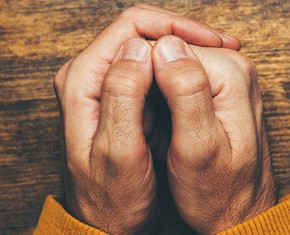The views expressed in our content reflect individual perspectives and do not represent the authoritative views of the Baha'i Faith.
One of the issues that humanity has always faced is how to reconcile the notion of a benevolent God with the reality of human suffering.
Only a viewpoint that takes into consideration the existence of an afterlife can possibly explain both the terrible afflictions that human beings are sometimes made to endure in this world and the loving concern of God for His children.
Baha’u’llah taught that tests and afflictions are sent by God to help us turn to Him. Although they sometimes seem harsh, they are necessary and beneficial:
O Son of Man! My calamity is My providence, outwardly it is fire and vengeance, but inwardly it is light and mercy. Hasten thereunto that thou mayest become an eternal light and an immortal spirit. This is My command unto thee, do thou observe it. – Baha’u’llah, The Hidden Words, p. 15.
Abdu’l-Baha explained the concept of suffering as follows:
The trials of man are of two kinds. (a) The consequences of his own actions. If a man eats too much, he ruins his digestion; if he takes poison he becomes ill or dies. If a person gambles he will lose his money; if he drinks too much he will lose his equilibrium. All these sufferings are caused by the man himself, it is quite clear therefore that certain sorrows are the result of our own deeds.
(b) Other sufferings there are, which come upon the Faithful of God.
Consider the great sorrows endured by Christ and by His apostles!
Those who suffer most, attain to the greatest perfection.
Those who declare a wish to suffer much for Christ’s sake must prove their sincerity; those who proclaim their longing to make great sacrifices can only prove their truth by their deeds. Job proved the fidelity of his love for God by being faithful through his great adversity, as well as during the prosperity of his life. The apostles of Christ who steadfastly bore all their trials and sufferings—did they not prove their faithfulness? Was not their endurance the best proof?
These griefs are now ended.
Caiaphas lived a comfortable and happy life while Peter’s life was full of sorrow and trial; which of these two is the more enviable? Assuredly we should choose the present state of Peter, for he possesses immortal life whilst Caiaphas has won eternal shame. The trials of Peter tested his fidelity. Tests are benefits from God, for which we should thank Him. Grief and sorrow do not come to us by chance, they are sent to us by the Divine Mercy for our own perfecting.
While a man is happy he may forget his God; but when grief comes and sorrows overwhelm him, then will he remember his Father who is in Heaven, and who is able to deliver him from his humiliations.
Men who suffer not, attain no perfection. The plant most pruned by the gardeners is that one which, when the summer comes, will have the most beautiful blossoms and the most abundant fruit.
The labourer cuts up the earth with his plough, and from that earth comes the rich and plentiful harvest. The more a man is chastened, the greater is the harvest of spiritual virtues shown forth by him. A soldier is no good General until he has been in the front of the fiercest battle and has received the deepest wounds. – Abdu’l-Baha, Paris Talks, pp. 49-50.
You May Also Like
Comments

















That's the Vision of Christ.